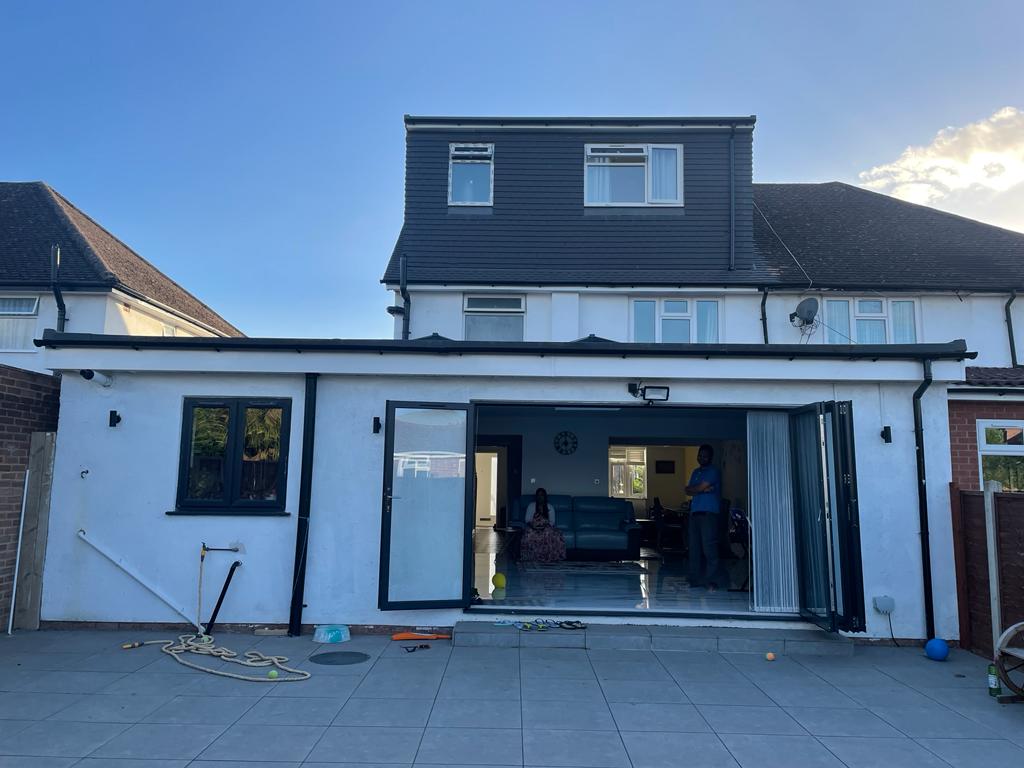Home improvement encompasses a wide array of projects aimed at enhancing the aesthetics, functionality, comfort, and value of a dwelling. Whether it involves minor cosmetic upgrades or major renovations, home improvement projects can transform a house into a personalized haven that reflects the owner’s taste and lifestyle. Learn everything you need to renovate your house with our home improvement guide and build your dream home.

Types of Home Improvement Projects
Home improvement projects span a broad spectrum, catering to diverse needs and budgets. Some common categories include:
Interior renovations: These projects focus on enhancing the interior spaces of a home. They can include painting walls, upgrading flooring, remodeling kitchens and bathrooms, installing new lighting fixtures, and adding built-in storage solutions.
Exterior renovations: Exterior renovations aim to improve the curb appeal and structural integrity of a home. Popular projects include replacing siding, upgrading windows and doors, repaving driveways, landscaping, and adding decks or patios.
Structural improvements: Structural improvements involve making changes to the foundation, framing, or load-bearing walls of a home. These projects are typically undertaken to address safety concerns, expand living space, or improve energy efficiency.
Energy-efficient upgrades: Energy-efficient upgrades focus on reducing a home’s energy consumption and carbon footprint. Examples include installing insulation, upgrading to energy-efficient windows and appliances, and installing solar panels.
Smart home technology: Smart home technology integration involves incorporating devices and systems that can be controlled remotely via smartphones or voice commands. These can include smart thermostats, lighting systems, security systems, and entertainment systems.
Benefits of Home Improvement
Embarking on home improvement projects can yield numerous benefits for homeowners:
Increased property value: Well-executed house renovations can significantly boost a property’s market value, making it a worthwhile investment for the future.
Enhanced comfort and functionality: Home renovations can create a more comfortable and functional living environment, catering to the specific needs and preferences of the occupants.
Improved energy efficiency: Energy-efficient upgrades can lead to substantial savings on utility bills while also reducing environmental impact.
Enhanced aesthetics and curb appeal: Home improvements can transform a drab and outdated dwelling into a stylish and inviting space, both inside and out.
Personalized living space: House improvements offer an opportunity to personalize a living space, reflecting the owner’s unique style and taste.
Increased safety and security: Certain home improvements, such as installing security systems or upgrading electrical wiring, can enhance the safety and security of a dwelling.
Planning a Home Improvement Project
Careful planning is crucial for a successful home renovation project. Key steps include:
Setting a budget: Determining a realistic budget is essential to avoid overspending and ensure the project remains financially feasible.
Defining the scope of work: Clearly outlining the project’s goals and objectives helps in selecting the right contractors and materials.
Obtaining necessary permits: Certain house improvement projects may require permits from local authorities. It is crucial to obtain these permits before commencing any work.
Hiring qualified contractors: Selecting experienced and reputable contractors is vital to ensure the project is completed to a high standard.
Choosing the right materials: Selecting appropriate materials that are durable, aesthetically pleasing, and within budget is crucial for a successful outcome.
DIY vs Hiring Professionals
Homeowners can choose to tackle certain home improvement projects themselves or hire professionals. DIY projects can be cost-effective but require time, skills, and tools. Hiring professionals for improving your homes ensures expertise and efficiency but comes at a higher cost. The choice depends on the complexity of the project, the homeowner’s skills, and budget considerations.
Financing House Renovation Projects
Various financing options are available for home improvement projects, including:
Personal savings: Utilizing personal savings is the most straightforward way to finance a project, avoiding interest payments and debt.
Home equity loans or lines of credit: These options leverage the equity in a home to provide funds for renovations.
Personal loans: Personal loans offer a lump sum of money that can be used for home improvements.
Credit cards: Credit cards can be used for smaller projects or to purchase materials, but high-interest rates should be considered.
Government programs: Certain government programs offer grants or low-interest loans for energy-efficient upgrades or renovations for accessibility.
Home Improvement Guide: Conclusion
Home improvement projects can be a rewarding endeavor, transforming a house into a dream home while also increasing its value. Careful planning, budgeting, and selecting the right professionals or DIY approach are key to a successful outcome. Whether it’s a minor upgrade or a major renovation, house improvement projects offer an opportunity to create a personalized and comfortable living space that enhances the quality of life for its occupants.
